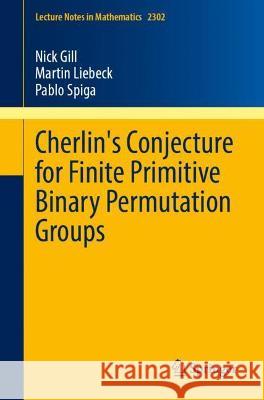Cherlin's Conjecture for Finite Primitive Binary Permutation Groups » książka
topmenu
Cherlin's Conjecture for Finite Primitive Binary Permutation Groups
ISBN-13: 9783030959555 / Angielski / Miękka / 2022
This book gives a proof of Cherlin’s conjecture for finite binary primitive permutation groups. Motivated by the part of model theory concerned with Lachlan’s theory of finite homogeneous relational structures, this conjecture proposes a classification of those finite primitive permutation groups that have relational complexity equal to 2.
The first part gives a full introduction to Cherlin’s conjecture, including all the key ideas that have been used in the literature to prove some of its special cases. The second part completes the proof by dealing with primitive permutation groups that are almost simple with socle a group of Lie type. A great deal of material concerning properties of primitive permutation groups and almost simple groups is included, and new ideas are introduced.
Addressing a hot topic which cuts across the disciplines of group theory, model theory and logic, this book will be of interest to a wide range of readers. It will be particularly useful for graduate students and researchers who need to work with simple groups of Lie type.











